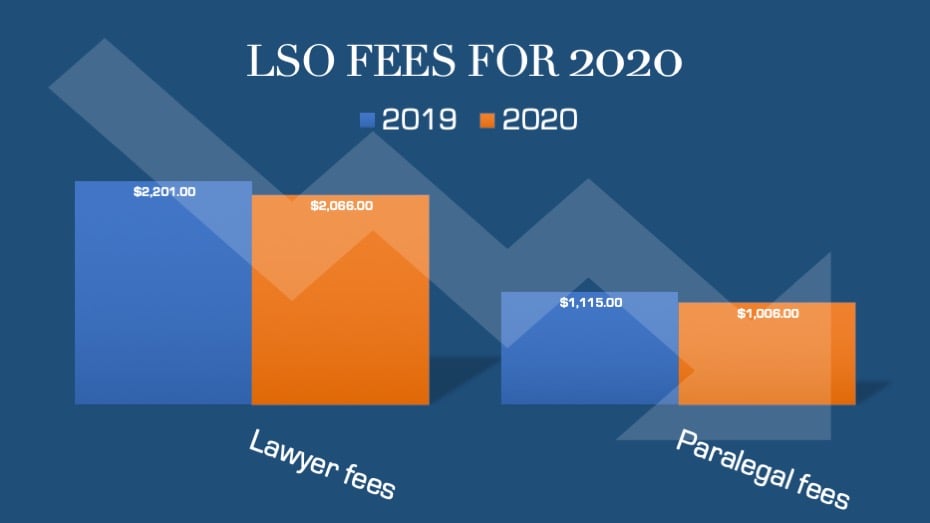
Lawyers will owe fees of $2,066 in 2020

Lawyers and paralegals will pay lower annual fees to the Law Society of Ontario next year as regulator cuts jobs and allocations for several anticipated projects.
Lawyers will owe fees of $2,066 in 2020 and paralegals will owe $1,006, down from 2019 fees of $2,201 for lawyers and $1,115 for paralegals.
The law society staff will shrink by 6.5 jobs, including three job cuts from the “Policy - Equity Initiatives” category, the budget said. As part of a budget-chopping process began at the beginning of 2019, remaining employees will be allotted 2 per cent for raises — less than consumer prices are expected to rise over the same period.
Overall, the LSO’s 2020 budget is $2.8 million lower than the 2019 budget, when $142.5 million was spent. Although the 2020 budget has been cut compared to 2019, 2020 expenses will continue to exceed revenues, with $130.7 million expected revenue and $139.4 million in expenses. The difference between expenses and revenue — which remains steady compared to 2019 at $8.7 million —will be funded by surpluses accumulated over previous years, to balance the budget. The LSO ended 2018 with total fund balances of $113.5 million, according to the annual report.
Licensees’ annual fees are the biggest source of funding for the LSO, and in 2020 revenues will be about $90.9 million from lawyers and $6.4 million from paralegals. Continuing professional development is another funding source for the regulatory body.
Professional regulation, including the Law Society Tribunal, is the LSO’s biggest expense, at nearly a third of the overall budget, although the 2020 budget calls for several jobs to be slashed from the operating budget.
Professional development and competence makes up another 23 per cent of the LSO’s spending. The remaining funds go toward administration, governance, client services and organizations such as the Federation of Law Societies of Canada, CanLII, law libraries, Pro Bono Ontario, the Law Commission of Ontario, Federation of Ontario Law Associations, and the Ontario Justice Education Network.
Other projected changes include a $500,000 reduction of the LSO’s contingency fund. The lower annual fees will also be offset by $1.2 million in “investment income,” the budget said.
Law Society Treasurer Malcolm Mercer said in a statement that the budget “provides the necessary resources for the coming year to regulate the legal professions in the public interest, and to provide valuable support to the legal professions.”
First-time bencher Philip Horgan says April’s bencher election played a role in the new budget, although the budget planning process started at the beginning of 2019.
“Elections have consequences,” said Horgan in an e-mail to Law Times. “While the Statement of Principles dominated the early conversations and deliberations, it was understood that increases in spending, and the overall growth of the Law Society, needed to be assessed and brought under control. We have now seen a reduction in committees, the creation of two new task forces on program review and proportionate regulation, and with the passage today of the 2020 LSO budget . . . . We will continue to be prudent and frugal in the operations of the Society.”
Editor’s note: The Law Society has a balanced budget. This article has been updated to clarify funds used to balance the revenue and expenses for 2019 and 2020.